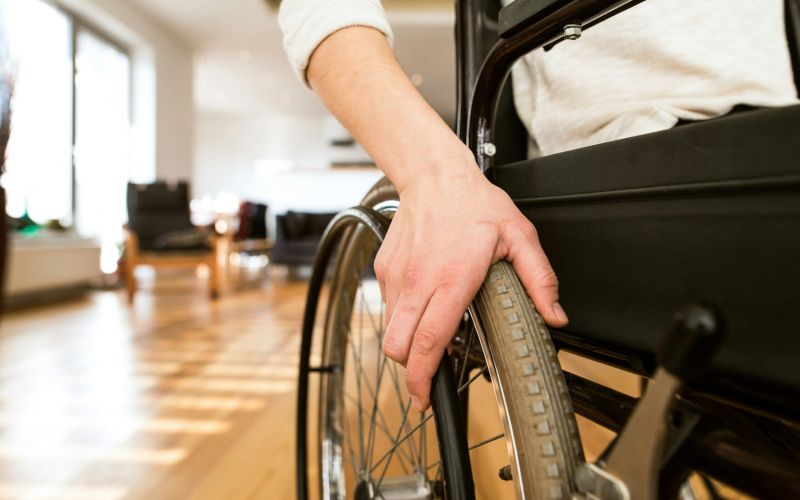Mental Benefits for South Carolina Workers’ Compensation



Serious workplace injuries can affect you for a long time, both physically and emotionally. People who experience a traumatic event are at high risk for developing mental health disorders such as post-traumatic stress disorder (PTSD), acute stress disorder, depression, and anxiety. These psychiatric disorders can be just as disruptive as physical injuries to many people. They not only make it difficult to cope with day-to-day life but also may affect your long-term health. If you experience such a condition, HawkLaw workers’ compensation attorneys will help you get compensated for your injuries, so you can spend more time recovering from your trauma. Call our lawyers to start healing today.
To help you become familiar with what may be possible and what your attorney may obtain in terms of mental health benefits under South Carolina workers’ compensation law, we provide beneficial information below.
Are Emotional Injuries Covered by South Carolina Workers’ Compensation Law?
Under South Carolina law, you can collect workers’ compensation insurance benefits for emotional injuries regardless of whether or not you sustained a physical injury. You just have to meet specific criteria, which include the following:
- Injury must be sustained as a result of one of the three categories listed above: mental-mental claims, physical-mental claims, or mental-physical claims.
- The employee must prove the conditions causing stress were extraordinary and unusual to normal work performance conditions.
- People who work as first responders (e.g., police officers) have difficulty collecting workers’ compensation for psychological injuries because exposure to traumatic events of employment is part of their job.
- Emotional injuries did not occur as the result of standard personnel actions. You cannot collect compensation benefits for mental health conditions that occurred as a result of such actions as being fired, laid off, disciplined, transferred, or demoted. The exception to this is when such actions occur in a manner that is extraordinary and unusual.
South Carolina’s workers’ compensation law provides guidance as to when and if compensation may be provided for an employee’s mental illness or injury when it is also accompanied by a work-related physical injury or an illness. As this can quickly become complicated and overwhelming to understand and prove, obtaining legal advice will be beneficial.
What is the Statute of Limitations for Reporting a Psychiatric Injury?
Workers compensation for mental health will need to adhere to a defined legal timeline and statute of limitations for filing a claim for psychiatric injuries. Most injuries need to be reported to your employer within 90 days, but determining the exact date of a mental injury is difficult. In such cases, under South Carolina workers’ compensation laws, you can notify the employer within 90 days of discovering the emotional injury.
For example, an employee may suffer post-traumatic stress disorder following a traumatic workplace event. However, in many cases, PTSD symptoms do not manifest or become noticeable until weeks, months, or even years later.
After reporting to your employer, you have two years to file your workers’ compensation claim in South Carolina.
What is the Difference Between Physical and Emotional Injuries in South Carolina?
When it comes to physical and emotional issues in South Carolina, it is essential to understand differences and what type of claims can be made for workers’ compensation benefits. While physical injuries can cause emotional injuries and vice versa, the distinction is not always so straightforward.
Physical injury is defined as bodily injury or damage and may include cuts, abrasions, burns, bruises, or physical disfigurement. It also may result in physical pain, functional impairment of a body organ, member, or your mental faculty, or any other type of bodily injury, regardless of whether it is temporary or not.
Emotional injury differs in that this type of injury refers to impairment or disorder of the psychological or intellectual capacity of an individual. To fit this definition, the injury must be evidenced by a clearly observable and substantial reduction in the individual’s ability to function within a recognized normal range of behavior and performance. Such conditions are also referred to as psychological injuries.
To be compensable under workers’ comp law in South Carolina, work-related injuries must meet one of the following criteria.
Mental-Mental Claims
Mental-mental claims do not involve physical injuries. Instead, one’s mental illness is caused by a stressful work environment where there exists extraordinary and unusual occupational stress. This level of stress is beyond what is considered to be normal work conditions as experienced by an average co-worker or employee.
Physical-Mental Claims
A physical-mental claim is when a mental disorder is caused by a physical injury that required or continues to require medical treatment. An example of this type of claim is when an employee receives a diagnosis of clinical depression resulting from a work-related bodily injury or a work-related illness. Another example is when a injured employee suffers a back injury that leads to diagnosed anxiety due to the inability to function as they once did.
Mental-Physical Injury Claims
The mental-physical claim is one in which a physical injury occurs due to a diagnosed work-related mental illness or disorder. For example, due to working conditions and occupational stress, the individual develops ulcers or suffers a stroke.
How Do I Collect Workers’ Comp Benefits for Psychiatric Injuries?
In order to collect workers’ comp benefits for psychiatric claims, you must provide medical evidence that your work in some way caused the psychiatric injury.
Medical evidence is essential and refers to the expert opinion or testimony put forth with a reasonable degree of medical certainty, along with documentation, records, or other proving materials that are submitted by a health care provider, usually a board-certified psychiatrist or a clinical psychologist (SC Code of Laws, §42-1.160(G)).
Also, if you have sustained physical injuries, both your doctor and a psychiatrist will need to confirm that the mental disorders and your symptoms are job-related.
Essentially, the overall claims process will involve the following steps:
1. Notify your employer that an injury or illness has occurred
In South Carolina, an employee is required to notify the employer within 90 days of the work-related accident that caused the injury or within 90 days from the date that you discovered an injury that is compensable.
2. Employer Files a Claim
Your employer, once notified, files its own claim with the South Carolina Workers’ Compensation Commission.
3. Acceptance or Denial of Claim
Once notice is given, the employer or its insurance company will either accept or deny your workers’ compensation claim.
4. Employee (Claimant) Can File for a Hearing
As the injured claimant, if your employer or insurance company denies the claim or fails to make payment in accordance with what you are entitled to, you can file for a hearing with a worker’s compensation commissioner. At the hearing, claim-supporting testimony and a presentation of your medical evidence can be presented by you or your workers’ comp benefits attorney.
5. Issuance of a Ruling
A ruling will be issued by the workers’ comp commissioner as to whether your injury is compensable according to South Carolina law and what those comp benefits will be, which may include coverage for medical and mental health treatments.
Does Workers’ Compensation Cover PTSD Treatments in South Carolina?
PTSD, post-traumatic stress disorder, is a distinctive mental health condition where the individual suffers emotionally and mentally following an experience or the witnessing of a particular event that caused intense feelings of terror, helplessness, or fear.
Is PTSD considered a work-related injury? The answer is that it depends.
In the state of South Carolina, workers’ comp law currently restricts the availability of benefits for such psychological injuries as PTSD. However, if the mental health conditions are a result of a workplace injury or the occurrence of an extraordinary situation, compensation will be available. These extraordinary situations include:
- Witnessing the death of another individual in the workplace
- Sexual assault that was committed by your co-worker during the course or scope of your employment
- Abuse from another employee or co-workers
- Criminal Activity which victimized you in the workplace, such as an active shooter situation or robbery
As a result of any of these, an employee suffering post-traumatic stress disorder can receive workers’ compensation coverage for treatments. These treatments may include talk therapy, biofeedback therapy, or cognitive-behavioral therapy. Treatment also may include prescribed medications to treat such symptoms as depression or anxiety. Physical symptoms relating to post-traumatic stress disorder, including gastrointestinal issues or migraines, may additionally be treated with medications.
If a bodily injury does not accompany the PTSD, your claim will need to prove that the post-traumatic stress disorder is due to unusual and extraordinary workplace conditions. Medical evidence will be required, showing that the condition resulted from those workplace conditions also.
Can I Get Workers’ Compensation for Stress-Related Injuries?
Under a mental-physical claim, injured workers may be able to receive workers’ compensation benefits for stress-related injuries as long as they meet the criteria discussed above.
Essentially, the mental injury or illness of stress must have occurred within the workplace or during the course of your employment. A resulting physical injury must be found by medical professionals to be causally connected or related to that diagnosed stress with a work-related cause.
Your dedicated workers’ compensation attorney can provide legal advice, help you present evidence, and file a claim, so you have a strong chance of receiving these benefits in such occurrences of stress-related injury situations.
Does SC Workers’ Compensation Cover Other Types of Emotional Injuries?
In addition to post-traumatic stress disorder, workers’ compensation covers other kinds of mental health issues or emotional disorders. Such emotional injuries potentially receiving coverage include acute stress disorder, depression, and anxiety. All of these can severely restrict an employee’s capabilities, both in the workplace and in their day-to-day lives.
It is important to note here that workers’ compensation claims for mental illness are often contested by employers who argue something in the worker’s personal life is causing emotional or mental health issues. These issues may include grief at the loss of a loved one, divorce, illness of a child, and so forth.
Therefore, to receive benefits, you will need to prove that the emotional injury was directly caused by your employment.
Workers’ comp claims for emotional injuries are complicated, especially when no physical injury occurs. These situations are where your workers’ compensation lawyer can help. Not only will that lawyer be able to assist you in compiling the medical evidence required to prove your claim, but they will also handle communications with the employee and insurance company, particularly if those entities contend that the emotional disorder is not work-related but is a personal issue.
HawkLaw Fights for Your Mental Health
When it comes to your rights under South Carolina workers’ compensation law, HawkLaw stands ready to fight for you and the benefits you deserve for mental health injuries or illnesses suffered in the workplace. If you are seeking a law firm to assist you in claiming these benefits, or you have questions as to whether you are eligible or not, let us provide the information and legal advice you need.
Call 888-HAWKLAW today or enter your contact information in our online form to request a personal consultation. One of our HawkLaw team members is ready to take your call and help you find the help you need.
John D. Hawkins
John Hawkins is the Founder and CEO of HawkLaw He has been licensed to practice law in South Carolina since his graduation with honors in 1994 from the University of South Carolina School of Law, where he was on the Law Review and Order of Wig and Robe.
-
$3,000,000*SettlementTrucking Accident
-
$1,005,000*SettlementCar Accident
-
$575,000*SettlementPersonal Injury
"*" indicates required fields











